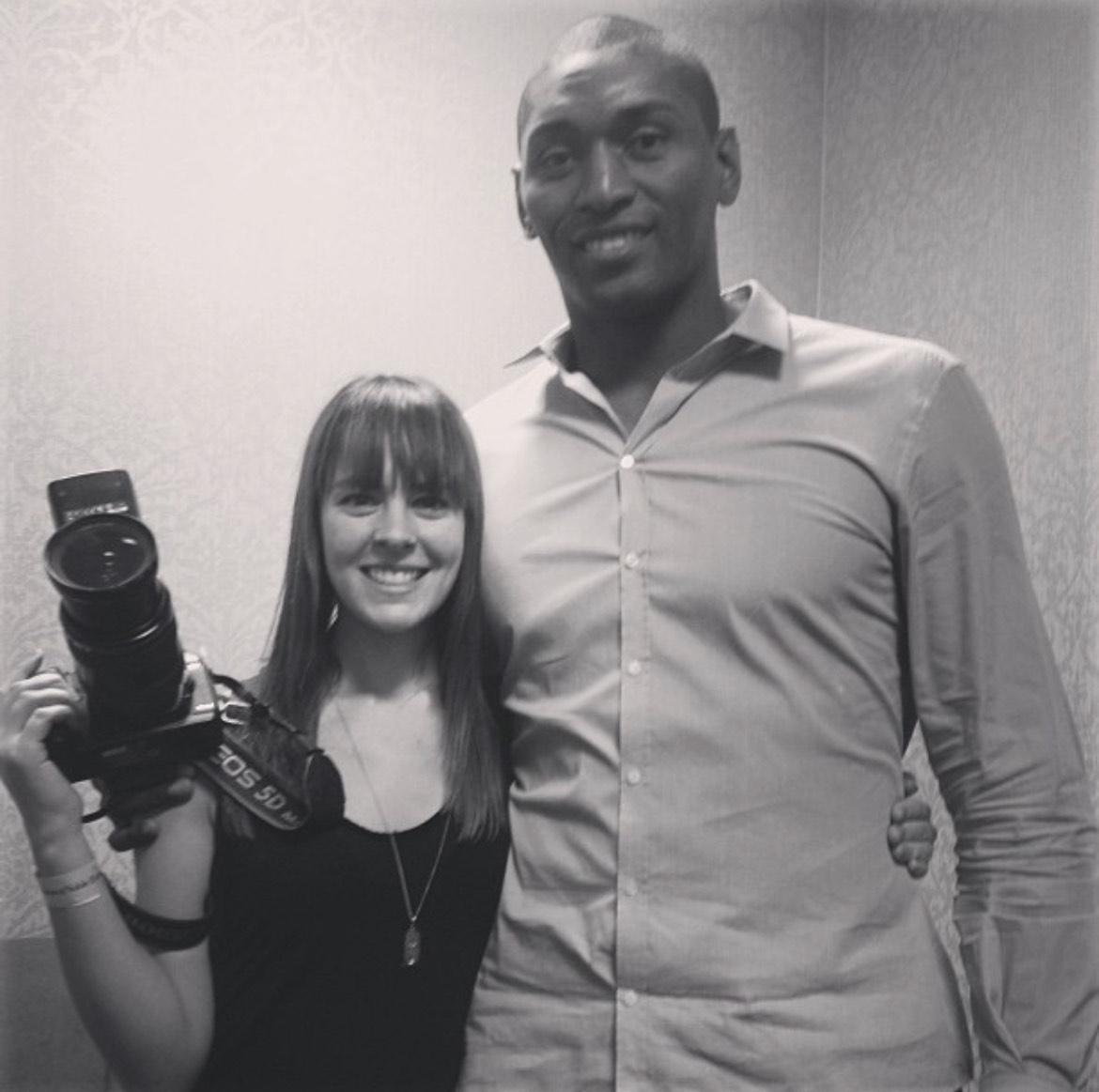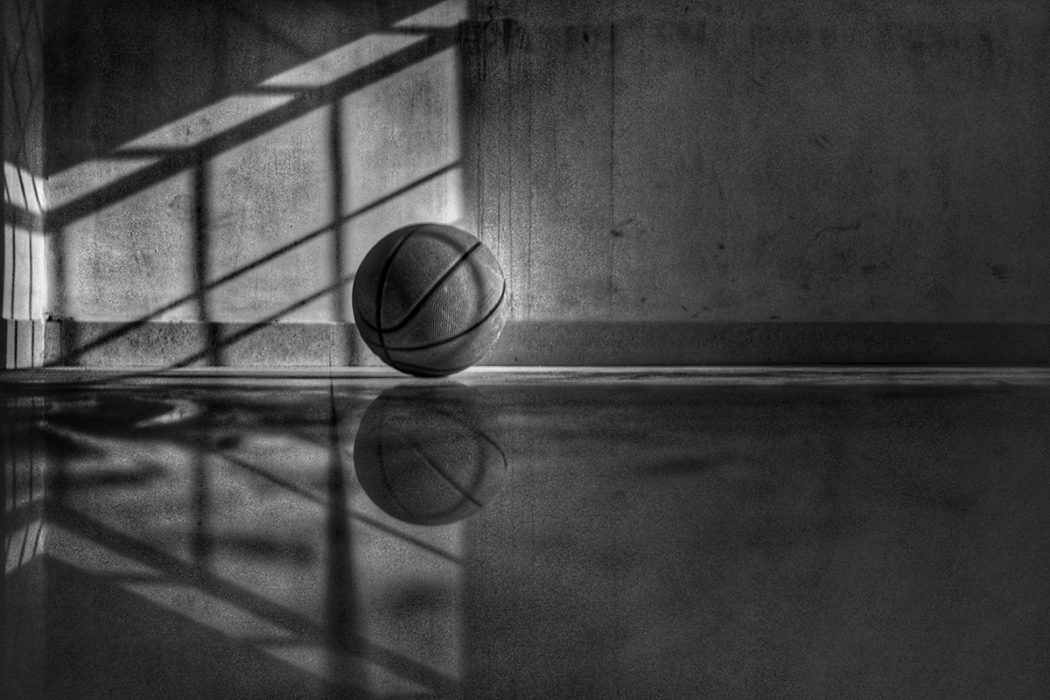In 2010, Ron Artest (now Metta Santiford Artest) famously thanked his psychiatrist after winning the NBA finals with the Lakers. It was a huge moment in sports, to have somebody be so upfront and honest about getting help for mental health, a topic for whatever reason that has been taboo up until recently.
His openness and honesty about seeking treatment certainly opened the door for other players to be more vocal about their own struggles. He won a Ci Care Award in 2013 for bringing awareness to the cause. Roy Hibbert has cited Artest as an inspiration for seeking his own mental health treatment.
People didn’t seem surprised that Artest sought treatment. I’ve wondered if he hadn’t famously engaged in an all-out brawl with the crowd during “the malice at the palace” incident in 2004, would people have been more surprised?
In 2017, Cavs power forward Kevin Love had a panic attack on the court mid-game, opening him up to therapy and finally admitting to himself he was having a hard time. It literally took his body having a physical reaction to his internal hardships for him to feel comfortable getting help. The following year, inspired by DeMar DeRozan’s candid comments about having depression, he wrote a piece for The Players Tribune speaking about his personal experience publicly, something he previously didn’t feel comfortable talking about.
Is there an expectation for an outward incident to validate mental health struggles, especially for those who “have it all”?
Last year in the 2020 – 2021 season playoffs, 76ers Ben Simmons did not perform well, seemingly coming down with the yips. He couldn’t shoot. They lost to the Hawks with lots of backlash on Simmons, blaming him for the series loss.

Teammate Joel Embiid, the franchise’s star, and self-proclaimed troll, was open in calling him out. This allegedly prompted Ben Simmons to ask for a trade, which was eventually granted in February 2022 to the Nets in exchange for James Harden (who had only joined his former team a year prior).
Ben Simmons sat out the entirety of the 2021 – 2022 season, citing mental health reasons. He was fined $19M by the 76ers due to his lack of participation.
Many thought Ben Simmons was using his mental health as an excuse to not play, that he was merely being petty and protesting because he was upset by the comments made by Embiid, being dramatic and forcing a trade.
My question is, why is it so hard for people to believe that Ben Simmons is actually struggling?
We were still in the thick of the pandemic during the last NBA playoffs. The impact this had on people, especially younger ones like Simmons has been widely reported. He entered the 2020 – 2021 season at 23 years of age, the prime of when mental health issues begin to present in people.
In addition to that, his family was going through some very hard and widely publicized problems last year. This all came out in the press in April 2021, right before the playoffs, and continued on for the remainder of the year.
In the One & Done / Ben Simmons documentary, we catch a glimpse into his life in the years prior to entering the NBA. What we see in this film is a nice, quiet kid who is extremely close albeit dependent on his large family. Ben’s parents are incredibly supportive and nurturing as are his siblings, many of whom were working for him at the time.
In one scene, his mother is helping him pack for college, making sure to include his childhood teddy bear among his socks, boxers, and other necessities.
He chose to attend LSU to be with his godfather, who was the assistant coach. It is clear having a close and encouraging support system around him at all times is important for Simmons and something he is used to, a gift many people don’t have.
His full sister Olivia, who was in her early 20s at the time of filming, comes forward with the mental health struggles she was experiencing in the documentary. She is diagnosed with bipolar disorder and opens up about it on camera.
It is common for mental health issues to run in families, especially when one member has been fully diagnosed. In addition to that, it’s been no secret that the pandemic has increased issues like anxiety and depression for many people, especially young adults. The NYTimes cited a study in which 63% of people aged 18-24 reported having anxiety and depression during the pandemic with rates rising across the board.
On top of that, the fact he was having an adversarial relationship with Joel Embiid, the team leader with a tough exterior and a direct communicator, may have additionally contributed to his mental anguish and inability to perform.
With all these factors, his age, a pandemic, family strife, a history of mental illness in the family, and being a seemingly sensitive person, is it really that hard to believe that Ben Simmons may be in fact struggling mentally and having a hard time?
Why is it especially hard for people to believe this about men if they are suffering quietly?
When Simmons got traded to the Nets my first thought was “this is definitely a more nurturing environment”, having a teammate like Patty Mills would be a positive influence, who is also from Australia. That week Patty spoke out in a press conference about his support for Ben Simmons, how he had his back and was there for him. Of course, there is also positive leadership from vets like Blake Griffin in the mix, who appears to promote team morale on and off the court. I was hoping for him to bounce back and prove his haters wrong.
Ben Simmons was due to make a return to the Nets for game 4 in the playoffs. He didn’t make it, citing another flare-up in what was thought to be a since healed back injury. Shortly after, he claimed he is still battling with a mental block that was potentially impacting his back pain. This isn’t too hard to believe, there are many studies citing lower back pain as a result of anxiety.
If he was making this all up to get traded from the 76ers, what explains the same issues persisting with the Nets?
More than anything, what I have wondered from this whole situation is this: is Ben Simmons actually happy playing in the NBA?
This had been a dream of his since childhood, something he worked for his entire life, including moving to the USA at a young age for the best opportunities.
Like any career, it’s hard to know how you feel about working in a field until you’re actually there. What do you do when you dedicate your whole life towards a specific career goal and it turns out to be the wrong path? With the whole world watching and an ungodly amount of money riding on your success?
I can’t imagine that’s an easy situation to walk out of, even if it’s ultimately taking its toll on your wellbeing to the point you can’t play.
I hope Ben keeps being open and honest about his situation in a way he is comfortable with (he seems to be a private person), so that he can work through his challenges and make a comeback. I hope the NBA continues to give support and understanding on a topic that was once considered taboo to discuss by professional athletes. That they find new and effective ways to support players mentally as well as physically.
Regardless of what happens, when it comes to his mental health, I’ll continue to believe Ben Simmons.

